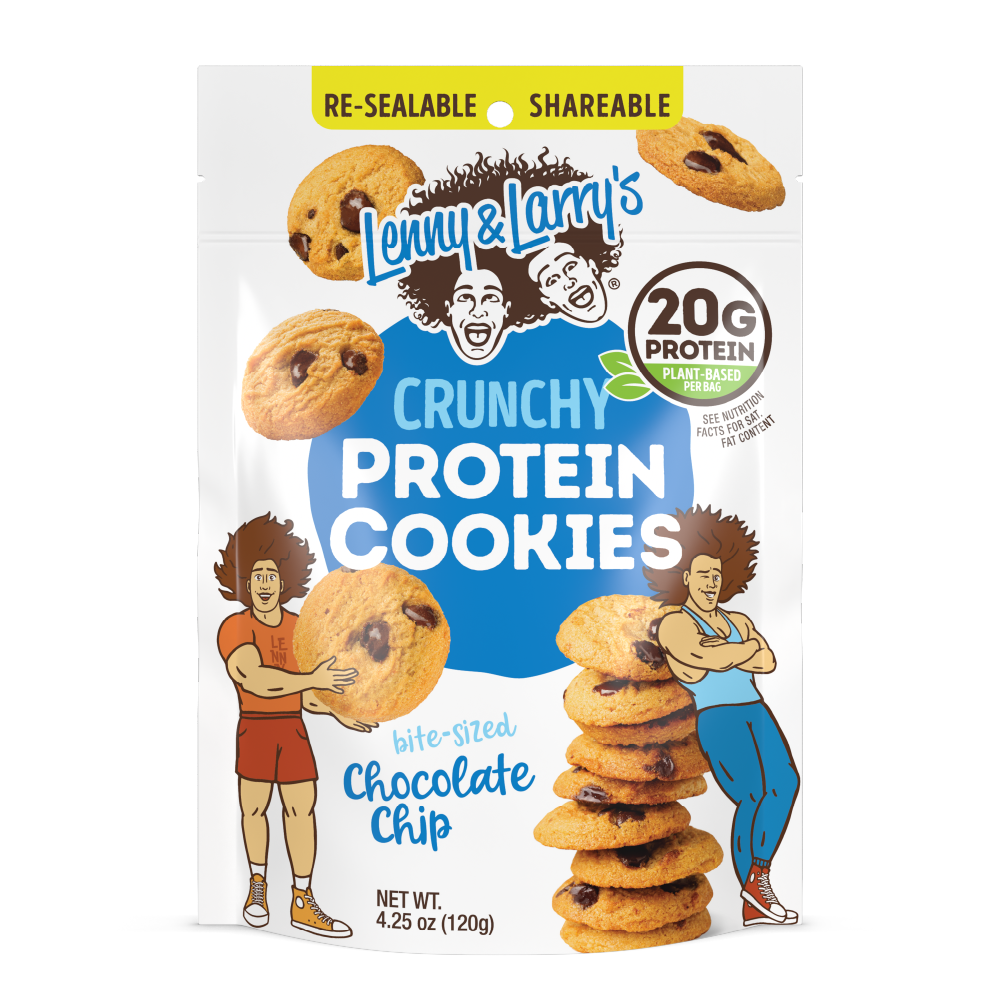UPDATED OCTOBER 2025.
Your gut does more than digest food - it influences how you feel, move, and even absorb nutrients. A healthy gut can improve mood, immunity, and overall wellness. Probiotic foods help restore the good bacteria your body relies on for balance. From yogurt to kimchi, here are 10 probiotic foods worth adding to your daily routine for stronger digestion and lasting energy (especially when paired with plant-based protein snacks) that help keep you fueled throughout the day.
Note: there are alternate ways to get the probiotics you need through supplements. Always consult your physician before taking any probiotics supplement(s).
A List Of Common Foods With Probiotics
1. Yogurt
2. Pickles
3. Certain Cheeses
4. Sauerkraut
5. Kefir
6. Kimchi
7. Miso
Originating from Japan, miso is a fermented paste made from soybeans, salt, and koji (a type of fungus). It's commonly used in soups and sauces, providing a rich source of probiotics that can aid digestion and offer anti-inflammatory properties.
8. Tempeh
This Indonesian staple is made by fermenting cooked soybeans into a firm, cake-like form. Tempeh is rich in probiotics, protein, and vitamins, making it a nutritious meat alternative that supports gut health.
9. Kombucha
A fermented tea beverage, kombucha is made by fermenting sweetened tea with a symbiotic culture of bacteria and yeast (SCOBY). This process produces a fizzy drink rich in probiotics, which can aid digestion and provide antioxidants.
10. Natto
A traditional Japanese food made from fermented soybeans, natto is known for its strong flavor and sticky texture. It's rich in probiotics, particularly Bacillus subtilis, which may enhance digestion and support immune function.
How often should you eat probiotic foods for gut health?
You don’t need to overload your system to see results.
Aim for one or two servings of probiotic foods each day (just enough to keep healthy bacteria active and balanced).
A small cup of yogurt at breakfast, a side of kimchi at lunch, or a few bites of sauerkraut with dinner can help maintain digestive stability.
Regular intake is more effective than occasional bursts because consistency supports long-term microbial balance.
Source: National Institutes of Health »
Can you combine probiotic foods with high-protein for better results?
Yes. Pairing probiotic foods with protein-rich food items helps your body recover faster and absorb nutrients efficiently.
When you eat both together, the protein supports muscle repair while probiotics assist digestion and nutrient uptake.
Grab a serving of kefir or kombucha alongside plant-based protein snacks to keep your gut balanced and your energy steady throughout the day.
Source: Harvard Health Publishing »
What time of day is best to eat probiotic foods?
You can eat probiotic foods at any time, but consistency matters most.
Many experts suggest taking them with or just before a meal, when stomach acid levels are lower, so more good bacteria survive digestion. If you’re active during the day, try adding probiotics to breakfast or lunch for sustained digestive support and improved nutrient absorption later on.
Source: Mayo Clinic »
What are quick grab-and-go probiotic foods when you’re busy?
When your schedule gets tight, you can still keep your gut balanced with quick options that don’t slow you down. Here are a few probiotic foods that fit into any busy day:
-
Drinkable Yogurt or Kefir – Ready-to-go bottles are packed with live cultures and protein. Just shake and drink between meetings or after a workout.
-
Kombucha – This fermented tea delivers probiotics and antioxidants. Choose low-sugar varieties to stay refreshed and avoid energy crashes.
-
Probiotic Snack Bars – Look for bars made with fermented ingredients or added cultures for a simple, no-prep option.
-
Pickles or Kimchi Cups – Pre-portioned fermented veggies travel easily and add crunch to lunch boxes or post-gym snacks.
-
Pair Probiotics with Protein Snacks – For lasting energy, combine your probiotic pick with a plant-based protein. The protein supports recovery while probiotics aid digestion and nutrient absorption.
Keeping a few of these on hand means you can feed your gut even on your busiest days.
Probiotics Are the Gut’s Best Friend
Even one probiotic-rich food a day can make a real difference in how your body feels and functions. Building a healthier gut doesn’t have to be complicated. Adding even one probiotic-rich food to your day (whether it’s kimchi, kefir, or yogurt) can help balance digestion, strengthen immunity, and support long-term wellness. Pair those benefits with plant-based protein to keep your body fueled and your gut bacteria thriving. Small daily choices can make a big difference in how you feel from the inside out.
 Lenny and Larrys
Lenny and Larrys
